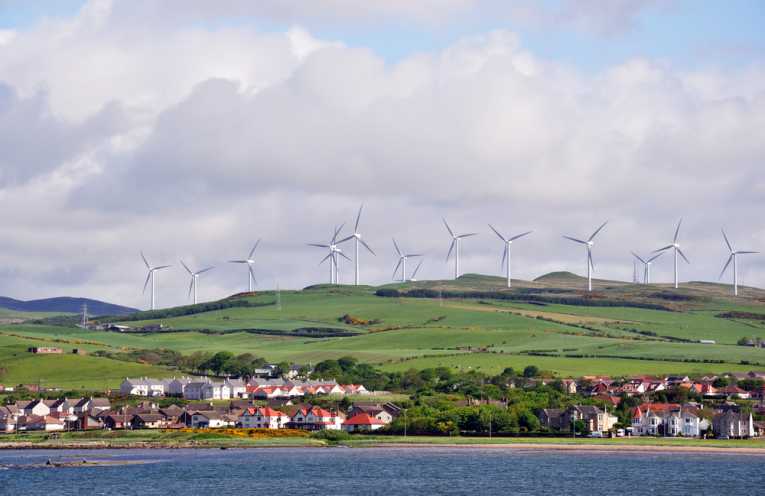The majority of both the British public support wind power, two new surveys have shown.
Leading conservation group WWF Scotland has welcomed the findings ahead of billionaire developer Donald Trump's appearance before Scottish MSPs who are looking into a proposed wind farm.
Mr Trump says plans for a new 11-turbine wind farm off the Aberdeenshire coast are "financial suicide".
A weighted poll by YouGov, undertaken on behalf of Scottish Renewables and including more than 1,000 respondents, reveals 71 per cent of Scots say wind power should play a part in its energy provision.
A separate but similar UK survey last week by Ipsos MORI for RenewableUK showed two-thirds of residents back wind power.
Dr Richard Dixon, Director of WWF Scotland, says, "We hope that Donald Trump reads this poll, as the results confirm that the people of Scotland overwhelmingly support wind power and its role in delivering a cleaner and greener future."
Mr Trump's "sudden interest in the Scottish coastline" did not take in the Scots and it should not stop the nation progressing with natural energy options.
Renewable energy not only helps reduce global warming and safeguard against the rising prices of fossil fuels, but it also could create badly needed jobs.
WWF Scotland made various points to the Scottish Parliamentary inquiry into the Scottish Government's Renewable Energy Targets, including:
- Scotland's heat and renewable electricity targets are reachable and vital if they are to achieve climate goals
- Increasing renewals would also help improve energy efficiency
- Recent electricity price rises were due to the price of wholesale gas, not renewables
- In the UK in 2010, total subsidies for gas, coal and oil was five times greater than that given to wind power
Donald Trump is due to appear before the Economy, Energy and Tourism Committee inquiry into renewable energy targets on Wednesday April 25.

Donald Trump image via Shutterstock
He has previously warned Scottish MSPs, "Your pristine countryside and coastlines will forever be destroyed and Scotland will go broke" and says creating these "industrial monstrosities" will end tourism. Mr Trump claims the wind farm would spoil the view from his new £750million golfing resort, near Menie, north of Aberdeen, which has currently been suspended.
This proposed wind farm project near to the planned Trump golf resort has also drawn criticism from the Royal Society for the Protection of Birds (RSPB) in Britain, who raised concerns that the wind turbines could harm rare birds in the area like the red-throated diver and common scoters. The RSPB have been discussing these issues with the developers in an effort to reduce both the layout and scale of the wind turbines.
The YouGov poll showed that 72 per cent strongly agreed or tended to agree with the statement, "I support the continuing development of wind power as part of a mix of renewables and conventional forms of electricity generation." Just 7 per cent strongly disagreed.
Support was strongest amongst younger people, with more than 80% of 18-24 year-olds strongly supporting wind power and its development.
Chief Executive of Scottish Renewables, Niall Stuart, adds, "This lays to rest once and for all the idea that people of Scotland do not support wind power."
The UK Ipsos Mori weighted poll for RenewableUK of more than 1,000 adults found 67% supported wind power in the UK, with just 11% opposed or strongly opposed.
Most (77%) accepted or completely accepted the effect windfarms have on the landscape.
Chief Executive, RenewableUK, Maria McCaffery, says, "Wind is an abundant, clean, secure and affordable energy source. It is therefore not only undemocratic to allow the vocal anti-wind minority to derail the UK's plans for renewable energy, but also damaging to our economy, undermining investment and jobs that will help to rebuild communities across the country and put the UK on a path to future economic prosperity."
The survey proves is a myth that most people think that wind farms are ugly, she adds.
RenewableUK is Britain's leading renewable energy trade association. It was set up in 1978 and has more than 630 corporate members.










